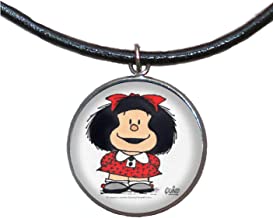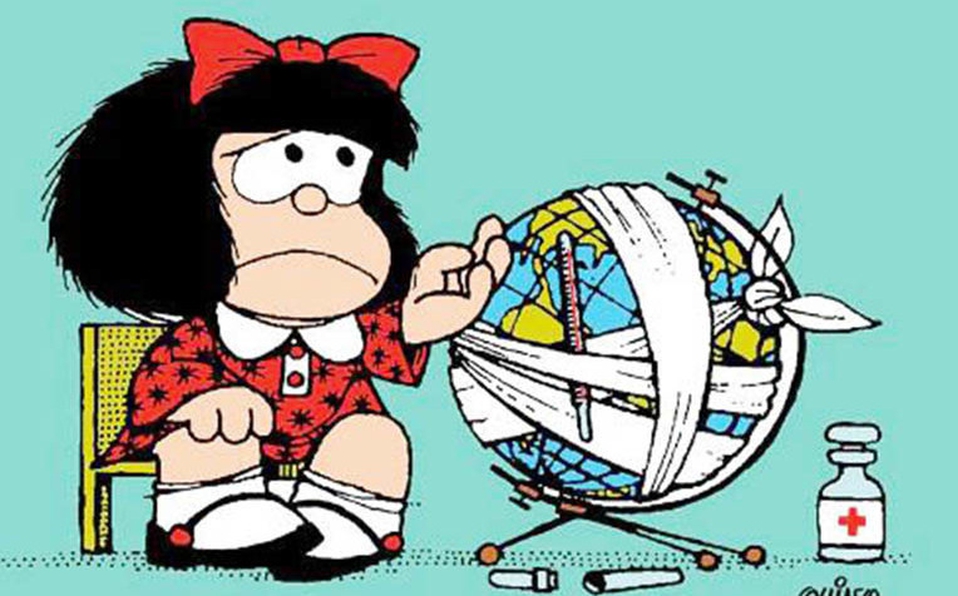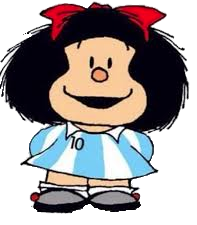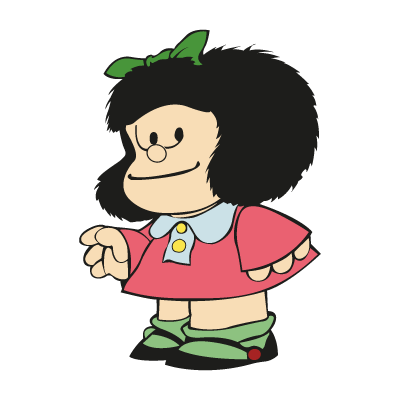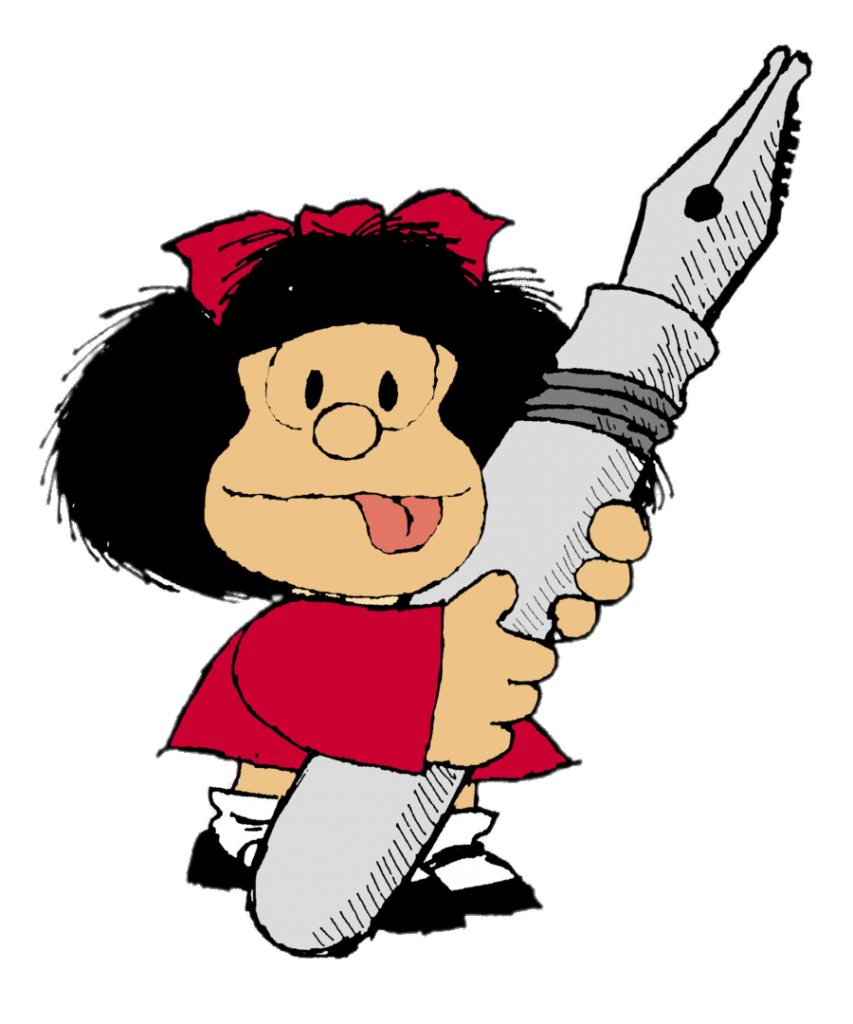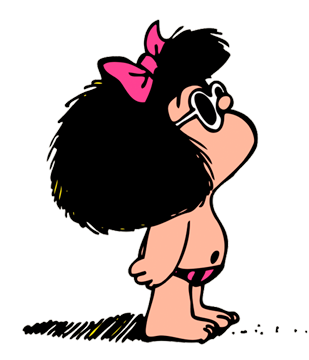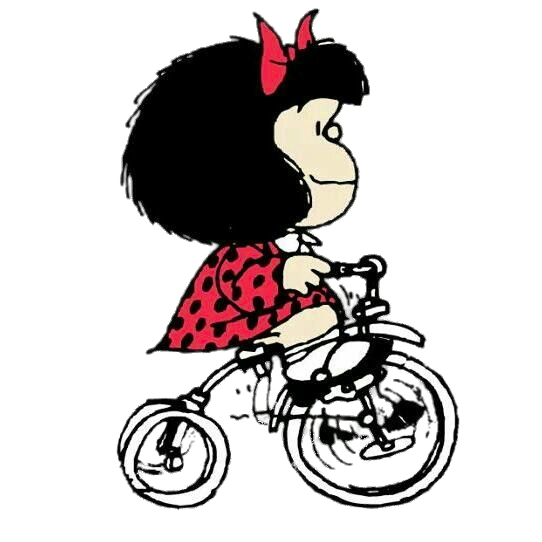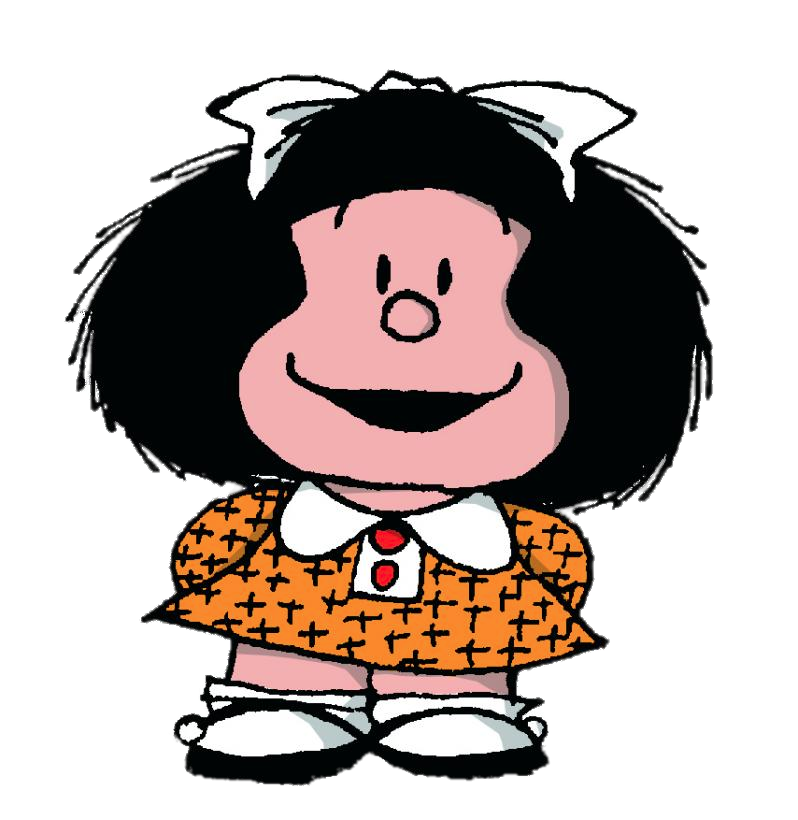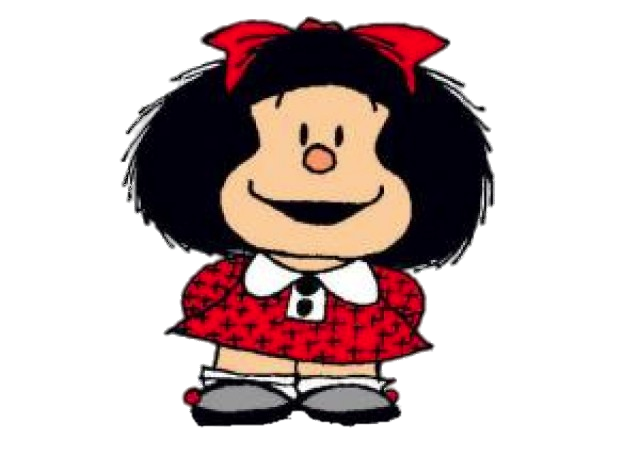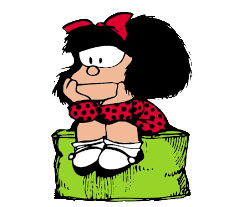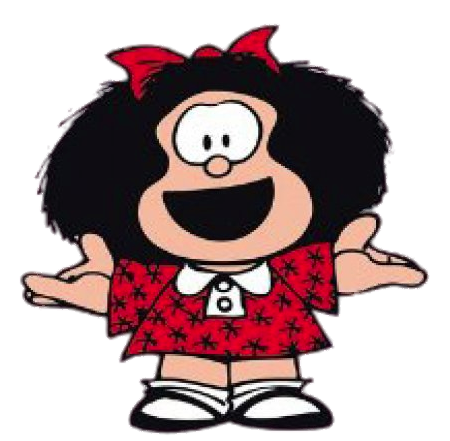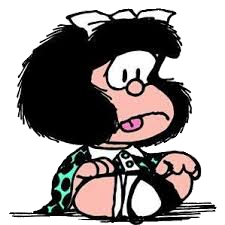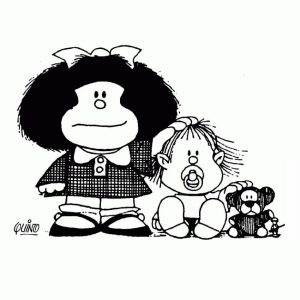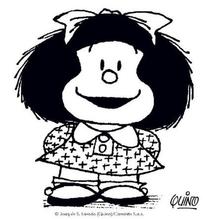Unofficial Mafalda cartoon wiki page
'Mafalda' toys, costumes, goodies & gadgets
You can discover a selection of ‘Mafalda’ merchandise on Amazon
All you need to know about
Mafalda
Disclaimer: we are a participant in the Amazon Services Associates Program, an affiliate advertising program designed to provide a means for us to earn fees by linking to Amazon.com and affiliated sites.
Country of origin
Argentina
Creation year
1964
Creator(s)
Joaquín Salvador Lavado Tejón (Quino)
Story
“Mafalda” is an Argentine comic strip and animated television series created by cartoonist Joaquín Salvador Lavado, better known as Quino. The series first appeared in 1964 and quickly became a cultural phenomenon in Latin America and beyond.
The show follows the adventures of Mafalda, a precocious and opinionated young girl living in Buenos Aires with her parents and younger brother. Mafalda is portrayed as intelligent, curious, and socially aware, often engaging in philosophical discussions with her friends and family about politics, society, and human nature.
Throughout the series, Mafalda and her friends encounter a variety of issues that are relevant to the time and place in which the show was created. These issues include poverty, inequality, environmentalism, and the role of women in society. The show is known for its sharp social commentary and biting satire, which often takes aim at the political and cultural landscape of Argentina and Latin America.
“Mafalda” has been praised for its humor, intelligence, and social relevance, and it has become an iconic and beloved cultural touchstone in Argentina and beyond. The show has been translated into multiple languages and has been adapted into various forms, including stage productions and merchandise.
However, the series has also been the subject of controversy and censorship. The show was banned in several Latin American countries during the 1960s and 1970s due to its perceived political subversiveness, and it has also been criticized by some for its portrayal of gender roles and certain political positions.
Despite these criticisms, “Mafalda” remains a landmark of Latin American culture and a testament to the power of animation to explore complex social and political issues in an accessible and entertaining way. The series has inspired generations of fans and artists, and its legacy continues to be felt in contemporary animated shows that tackle similar themes and issues.
The show follows the adventures of Mafalda, a precocious and opinionated young girl living in Buenos Aires with her parents and younger brother. Mafalda is portrayed as intelligent, curious, and socially aware, often engaging in philosophical discussions with her friends and family about politics, society, and human nature.
Throughout the series, Mafalda and her friends encounter a variety of issues that are relevant to the time and place in which the show was created. These issues include poverty, inequality, environmentalism, and the role of women in society. The show is known for its sharp social commentary and biting satire, which often takes aim at the political and cultural landscape of Argentina and Latin America.
“Mafalda” has been praised for its humor, intelligence, and social relevance, and it has become an iconic and beloved cultural touchstone in Argentina and beyond. The show has been translated into multiple languages and has been adapted into various forms, including stage productions and merchandise.
However, the series has also been the subject of controversy and censorship. The show was banned in several Latin American countries during the 1960s and 1970s due to its perceived political subversiveness, and it has also been criticized by some for its portrayal of gender roles and certain political positions.
Despite these criticisms, “Mafalda” remains a landmark of Latin American culture and a testament to the power of animation to explore complex social and political issues in an accessible and entertaining way. The series has inspired generations of fans and artists, and its legacy continues to be felt in contemporary animated shows that tackle similar themes and issues.
Who are the main characters of Mafalda?
Mafalda: A six-year-old girl with a great concern for the state of humanity.
Mamá: Mafalda's mother, a housewife.
Papá: Mafalda's father, an insurance agent.
Felipe: The brightest and oldest member of Mafalda's gang, Felipe is a good-natured dreamer.
Manolito: The son of a Spanish shopkeeper, Manolito is sometimes referred to as gallego.
Susanita: A frivolous girl with curly blond hair, Susanita's life revolves around femininity, gossip, and dreams of marriage and maternity.
Miguelito: About two years younger than Felipe and one year younger than Mafalda and the others, Miguelito is characterized by his lettuce-shaped hair.
Guille: Mafalda's little brother.
Libertad: Mafalda's new friend.
Muriel: A girl Felipe has a crush on.
The information provided on this page about Mafalda isn’t endorsed by the creators or the production. It has been compiled by fans of the character(s) who want to share their passion. Feel free to share it if you also love this cartoon!
Mafalda PNG images
Discover Mafalda characters in PNG format



